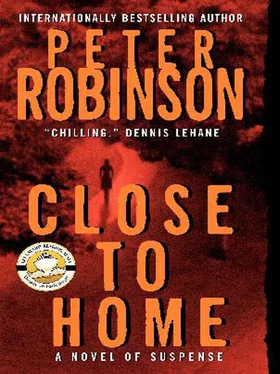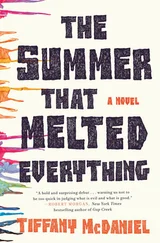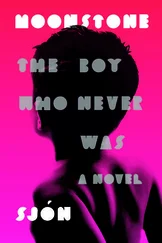Banks stood up. “I know,” he said. “But if there’s anything to be discovered, I’m sure DI Hart will discover it.”
“Are you going already?”
“It’s nearly teatime,” Banks said, smiling. “And my mother would never forgive me if I didn’t turn up for tea. She thinks I need fattening up.”
Mrs. Marshall smiled. “Better go then. Mustn’t cross your mother. By the way, they can’t release the body yet, but Miss Hart said she’d let me know when we can have the funeral. You will come, won’t you?”
“Of course,” said Banks. When he looked over to say good-bye to Mr. Marshall, he had a sudden flash of the big, muscular man he used to be, the sense of physical menace he had somehow conveyed. Back then, Banks remembered with a shock, he had been afraid of Graham’s dad. He never had any real reason to feel that way, but he had.
She should have packed it in long ago, Michelle realized, but she was loath to give up without finding at least some trace of Banks’s mystery man, if any existed. Besides, the material itself gave her an interesting picture of the times, and she found herself becoming quite fascinated by it all.
It hadn’t been a bumper crime year for Peterborough in 1965, but the fast-growing city had its share of some of the more newsworthy national problems, Michelle was fast discovering. Mods and rockers clashed at some city center pubs, cannabis was beginning to insinuate its way into the lifestyles of the young and rebellious – despite what Banks had said – and the pornography trade was blossoming in the shape of tons of German, Danish and Swedish magazines covering every perversion you could imagine, and some you couldn’t. Why not Norwegian or Finnish, too? Michelle wondered. Weren’t they into porn? Burglary and armed robbery were as common as ever, and the only thing that seemed new today was the increase in car theft.
Far fewer people owned cars in 1965, Michelle realized, and that made her think again about Banks’s statement. Banks said he had been assaulted by a dirty, scruffy “Rasputin-like” stranger on the riverside near the city center. But Graham Marshall had been abducted, along with a heavy canvas bag full of newspapers, two months later, from a council estate several miles away. The MOs were different. It didn’t look as if Graham had put up a struggle, for example, which he certainly would have done, as Banks had, if he’d been attacked by this frightening stranger and felt that he had been fighting for his life. Besides, the man who assaulted Banks had been on foot, and Graham hadn’t walked all the way to his burial site. It was possible that the mysterious stranger had a car somewhere, but not very likely. Given Banks’s description, Michelle would have guessed the man was homeless and poor, perhaps a tramp. The passing tramp. Cliché of so many detective stories.
The problem was that she still couldn’t see any logical connection between the event Banks had described and the disappearance of Graham Marshall. She thought that Banks’s sense of guilt might, over the years, have warped his judgment in the matter. It happened; she’d seen it before. But could it have happened that way? Who was this man?
There was a good chance, Michelle realized, that she might not find out anything about him in the police files. Not everyone had a file, despite what the antipolice groups seemed to think. She might have to dig in the newspaper morgue or perhaps the local mental hospital archives. The man sounded disturbed, and there was a chance he had sought treatment at some time. Of course, there was also every possibility that he wasn’t a local. Michelle had no idea exactly where the River Nene started, but she thought it was somewhere down Northampton way, and she knew that it flowed all the way to The Wash. Maybe he was walking the riverbank from town to town.
She flipped through file after file and tossed them aside in frustration. Finally, as her eyes were starting to tire, she struck gold.
The Coach and Horses, about a hundred yards along the main road, had changed over the years, Banks noticed, but not as much as some pubs. The large public bar had always housed a diverse group, mixed generations drinking there together, and today it was no different, though the racial mix had changed. Now, among the white faces, there were Pakistanis and Sikhs, and, according to Arthur Banks, a group of Kosovan asylum-seekers, who lived on the estate, also drank there.
Noisy machines with flashing lights had replaced the old bar-billiards area, the scarred wooden benches had been replaced with padded ones, perhaps the wallpaper had been redone and the light fixtures modernized, but that was about all. The brewery had forked out for this minor face-lift sometime in the eighties, Banks’s father had told him, hoping to pull in a younger, freer-spending crowd. But it didn’t take. The people who drank at The Coach and Horses had, for the most part, been drinking there most of their lives. And their fathers before them. Banks had drunk his first legal pint there, with his father on his eighteenth birthday, though he had been knocking them back with his mates at The Wheatsheaf, about a mile away, since he was sixteen. The last time he had been in The Coach and Horses, he had played one of the earliest pub video games, that silly machine where you bounced the tennis ball back and forth across a green phosphorous screen.
Though there were few young people to be seen there, The Coach and Horses still managed to be a warm and lively place, Banks noticed as he walked in with his father just after eight o’clock that night, his mother’s steamed pudding and custard – the proper food he was supposed to be eating – still weighing heavy in his stomach. His father had managed the walk without too much puffing and wheezing, which he put down to having stopped smoking two years ago. Banks had tapped his own jacket pocket rather guiltily for his cigarettes as they went out of the door.
This was Arthur Banks’s local. He had been coming here almost every day for forty years, and so had his cronies, Harry Finnegan, Jock McFall and Norman Grenfell, Dave’s father. Here, Arthur was respected. Here, he could escape the clutches of his ailments and the shame of his redundancy, at least for an hour or two, as he drank, laughed and told lies with the men with whom he felt most comfortable. For The Coach and Horses was, by and large, a men’s pub, despite the occasional couple and groups of women dropping by after work. When Arthur took Ida out for a drink, as he did on Fridays, they went to The Duck and Drake or The Duke of Wellington, where Ida Banks caught up on the local gossip and they took part in trivia quizzes and laughed at people making fools of themselves in the karaoke sessions.
But there was none of that at The Coach and Horses, and the piped sixties pop music was turned down low enough so that old men could hear one another talk. At the moment, The Kinks were singing “Waterloo Sunset,” one of Banks’s favorites. After Banks and his father had settled themselves at the table, pints in front of them, and introductions had been made, Arthur Banks first lamented Jock McFall’s absence due to hospitalization for a prostate operation, then Norman Grenfell started the ball rolling.
“We were just saying, before you got here, Alan, what a terrible thing it is about the Marshall boy. I remember you and our David used to play with him.”
“Yes. How is Dave, by the way?”
“He’s doing fine,” said Norman. “He and Ellie still live in Dorchester. The kids have grown up now, of course.”
“They’re still together?” Ellie Hatcher was, Banks remembered, Dave’s first real girlfriend; they must have started going out together around 1968.
Читать дальше












